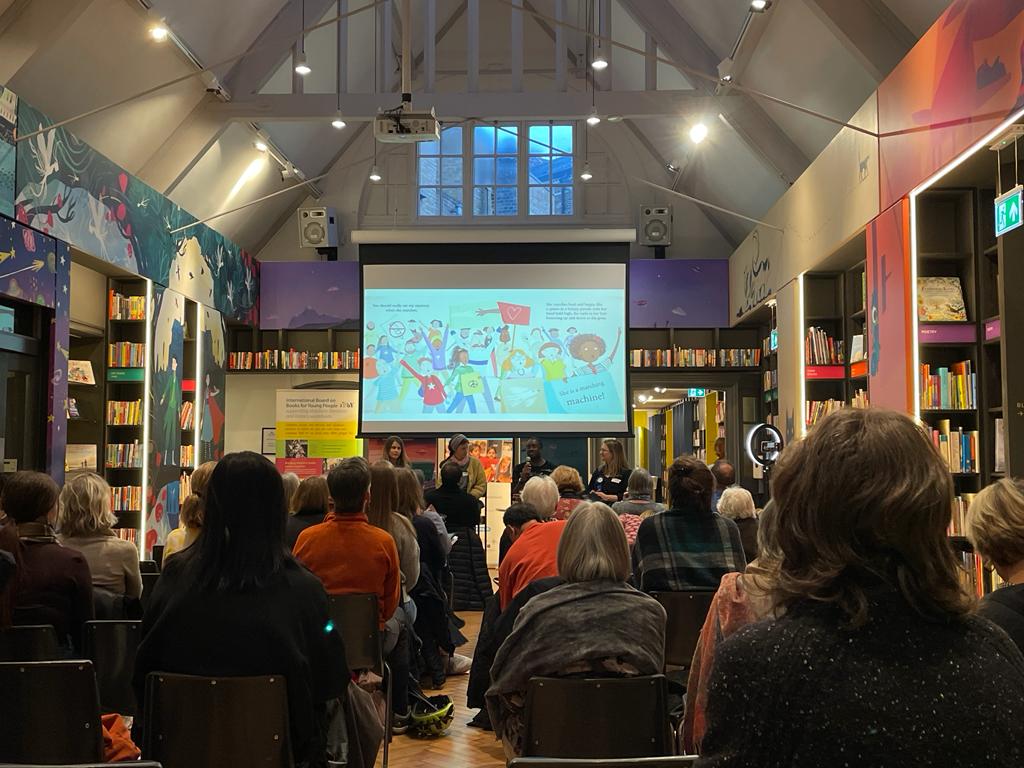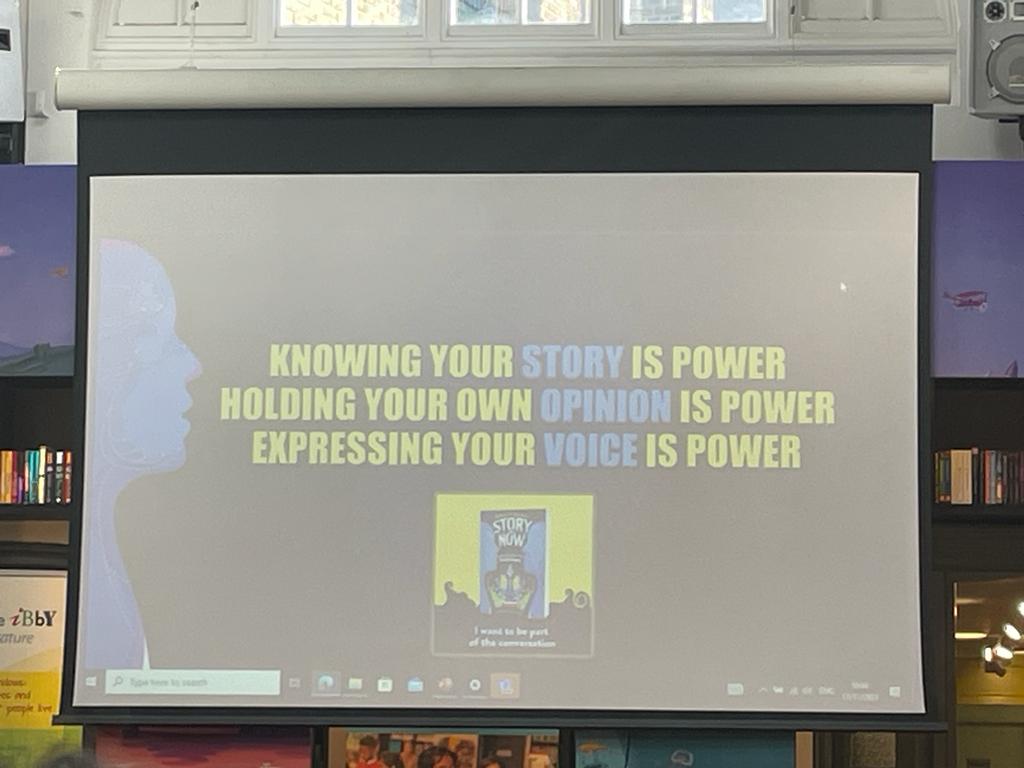Pages for Power and Protest: Reflection on the IBBY UK Conference 2023


A powerful day for IBBY UK and a great reminder of the strength of our own voices. On Saturday 11 November, 2023, IBBY UK held a conference titled ‘Pages for Power and Protest: Children’s Literature and Politics’. No one could have imagined how relevant this topic would be in our current international political landscape, but it was a welcome surprise indeed. A reminder of how we can each do our part to help improve the world.
Throughout the day, the invited speakers mentioned how important it is to be represented and to hear our own voices in stories. Having different viewpoints helps us in multiple ways, it helps us realize that we are all as important as everyone else. Ibby also held three parallel sessions where one could choose to discuss gender and politics in children’s literature, environmental issues, or how access to children’s literature impacts children themselves. These sessions gave people a chance to talk and think about specific issues more in-depth than before. For example, in the gender and politics sessions, we spoke about the importance of visibility of female characters and role models in children’s books and, later, about the different stereotypes popping up in transgender children’s books and how they might be harmful or helpful.
Multiple children’s literature authors, illustrators, and scholars (Shelina Janmohamed, Phyllis Ramage, Beverly Naidoo, Helen King Lesley Parr, Christine Pillainayagam, Cerrie Burnell, Emily Haworth-Booth, Nadine Kadaan, & Cory Reid) shared their stories with us: how they got published, why their stories were important, and how they felt growing up without seeing themselves represented in the media. Janmohamed emphasized the importance of making each voice heard, adding that every voice and opinion is unique and can change the world that we have been shown.
Last but not least, something mentioned multiple times during the conference was how children’s books have been self-censored with the thought that some topics are too hard for children to grasp or understand. However, all of our speakers could share the same conclusion that children are not to be underestimated. They understand more than we believe and it is important that we let them learn from people like them and unlike them to expand their world and form their opinions.
by Maria Jarero
